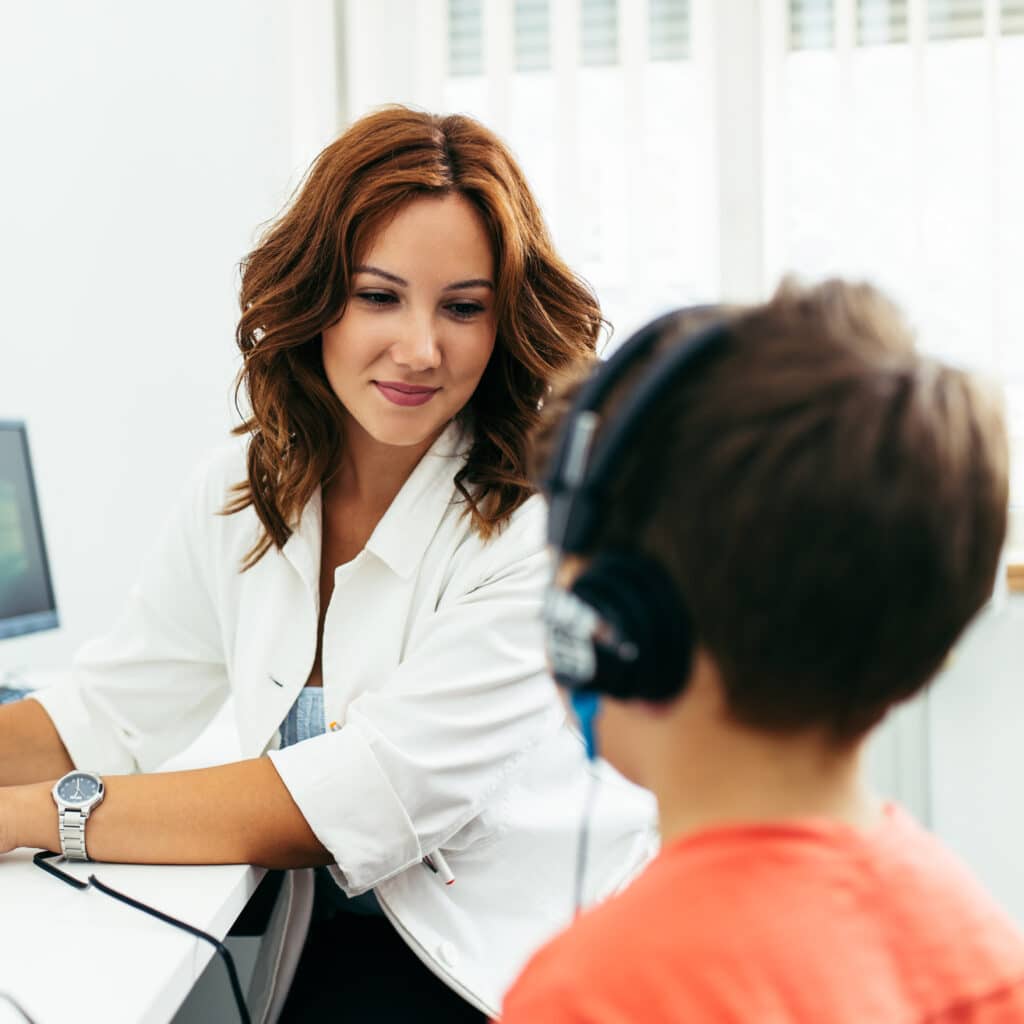What Is
Auditory Processing Disorder?
Auditory processing disorder (APD) is the inability or decreased ability to make efficient use of auditory information. Children with disordered auditory skills (APD) may exhibit a reduced ability to attend to, remember, or understand information they hear. They may not recognize subtle differences between sounds in words. In order to learn in a school via the auditory channel, a child needs the ability to:
- Hear adequately
- Listen attentively as well as remember, understand, and follow instructions
- Separate out important speech from all the other noises present
For a child with an auditory processing disorder, learning in the classroom environment, where noise and visual distractions can be constant, may become extremely difficult. If an auditory processing disorder remains undiagnosed and untreated, such a problem may persist, resulting in poor communication skills throughout adulthood. What many people don’t realize is that the problem is more related to poor information processing than hearing. In fact, most people with auditory processing disorders have normal hearing.

Specialized Testing
Specialized audiological testing evaluates the different areas of auditory function, such as:
- Hearing acuity
- Discriminating sounds in quiet and in noise
- Localizing sounds and speakers when listening to multiple conversations
- Phonemic awareness
- Remembering and sequencing what is heard
- Assigning meaning to information heard from different locations in the environment simultaneously
These auditory processing skills are the foundation for successful academic and social success.

What Can Be Done for APD?
Therapeutic approaches for management of auditory processing disorder may include:
- Training to improve integration and separation of competing auditory information, including spatial hearing exercises and hearing in noise exercises
- Providing specialized dichotic listening exercises to strengthen auditory pathways
- Using therapeutic techniques designed to improve auditory memory and listening comprehension
- Helping implement modifications of the listening/learning environment
- Teaching compensatory listening and learning strategies
- Assistive listening technology
The highest use of our auditory processing skills comes when they are used to process language (oral and written). Normal development of receptive/expressive oral language and reading skills is largely dependent on effective auditory processing abilities. Therefore, a comprehensive approach to APD management requires analysis of language processing skills development.

Language Processing Skills
Related to Auditory Processing
Understanding what we hear and read, and speaking and writing effectively, are uniquely human communication skills. Developing effective language skills is essential to learning, working, and enjoying family and social life with peers. When a child or adult cannot understand the language code, there is a receptive problem. If an individual does not know enough language rules to verbally share thoughts, ideas, and feelings completely, then there is an expressive problem.
Language is a code made up of rules that include:
- What words mean
- How to make new words
- How to combine words together
- Determine what word combinations are best in what situations
- Pragmatics (social language skills)
- Assistive listening technology
A comprehensive language evaluation uses standardized diagnostic tools, clinical observation, and parent/family and teacher interviews to assess the following:
- Oral language development (comprehension and expression)
- Written language skills (reading decoding, fluency, and comprehension; spelling and word use knowledge, sentence structure, and paragraph/story construction)
- Pragmatic language skills related to both oral and written language
Intervention Plan
We provide comprehensive auditory and language processing assessments to evaluate the causes of these communication difficulties. We then follow-up with an intervention plan customized to address deficits from an auditory processing and language processing approach. This approach allows us to treat the specific ways in which auditory information is refined, modified, and organized as it travels from the ear upward toward the higher language processing brain centers. Therapy is also offered to strengthen the overreaching linguistic skills needed for comprehension, memory, and recall of what is heard and read.
We follow best practice techniques recommended by the American Speech-Language-Hearing Association, to provide evidenced based and effective treatment. The therapy program we recommend and techniques we use encompass:
- Specific goals based on the results of comprehensive assessments of each auditory/language skill area
- Facilitating the participation of the child’s family and teachers in addressing program goals to ensure appropriate carry-over of target skills
- Emphasis throughout treatment on building and maintaining a child’s self-esteem and confidence
The highest use of our auditory processing skills comes when they are used to process language (oral and written). Normal development of receptive/expressive oral language and reading skills is largely dependent on effective auditory processing abilities. Therefore, a comprehensive approach to APD management requires analysis of language processing skills development.
